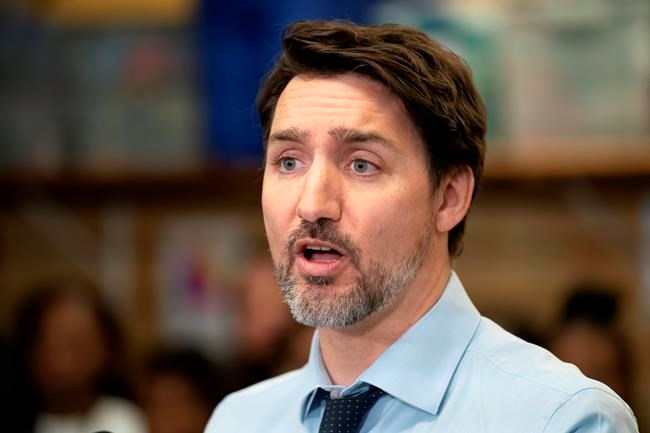OTTAWA — There are 235 Canadians on the passenger manifest for a cruise ship that is being held off the coast of California for coronavirus testing.
Global Affairs Canada says there are no confirmed cases of the new coronavirus on the ship.
But the federal department says previous passengers of the Grand Princess cruise ship have tested positive for COVID-19, which is the respiratory disease caused by a new strain of coronavirus that first appeared in China last year.
The federal department says it is in contact with the cruise line and local authorities and is monitoring developments closely.
Any Canadians who need emergency assistance are being asked to call the Canadian consulate general in San Francisco.
Earlier Thursday, Prime Minister Justin Trudeau said "knee-jerk" reactions to the outbreak will not keep people safe as he defended Canada's decision not to close its borders to foreign nationals coming from regions where the outbreak is spreading.
Misinformation being spread about the virus, which can cause a respiratory disease known as COVID-19, is having negative impacts on some communities' ability to keep their populations safe, Trudeau warned while speaking to reporters in Toronto.
"We're going to stay focused on doing the things that actually matter: on empowering Canadians to make the right decisions for their own health, for their families' health, listening to experts, working to co-ordinate with health authorities across the country, including in all provinces and territories and ensuring that our response is active and up to date every step of the way."
Australia has banned
U.S. President Donald Trump boasted on Twitter Thursday that U.S. border restrictions, which includes a travel ban on any foreign national who has travelled to Iran, are the reason U.S. illnesses and deaths related to COVID-19 has remained low.
Trump characterized his country's border measures as "quick action on closing our borders."
Other countries have a right to make different decisions in dealing with this outbreak, Trudeau said, but Canada is taking its lead from the World Health Organization and other health experts here and abroad.
"We know that keeping Canadians safe needs to be done in the right way and we're going to keep doing the things that actually keep Canadians safe," he said. "There is a lot of misinformation out there, there is a lot of knee-jerk reaction that isn't keeping people safe, that is having real challenging impacts on communities and on community safety."
The WHO has advised against the application of travel or trade restrictions to countries dealing with COVID-19 cases, citing evidence showing that restricting the movement of people and goods during public health emergencies is ineffective in most situations and may have a significant economic and social impact.
However, the federal government is stepping up its travel advice for Canadians — now warning against all travel to Iran due to COVID-19 concerns.
Global Affairs Canada posted a new alert Thursday morning, upgrading an advisory against non-essential travel to say that nobody should go.
The warning says that travel restrictions imposed to control the spread of the new coronavirus are making it increasingly difficult to leave Iran.
And because Iran doesn't recognize dual citizenship, Iranian-Canadians who might go for a visit likely wouldn't be able to get any help from Canadian officials to leave.
The Canadian government has warned against non-essential travel to China and all travel to the province where the new virus first broke out.
It also says to be extremely cautious about travel to Japan.
This report by The Canadian Press was first published March 5, 2020.
Teresa Wright, The Canadian Press



